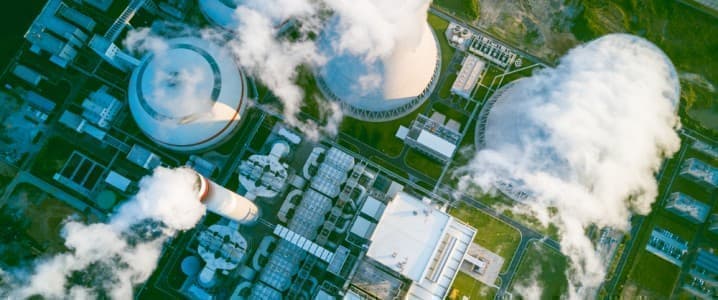Japan has announced a major U-turn in its energy policy after the Asian nation adopted a new policy promoting greater use of nuclear energy, effectively ending an 11-year prohibition and phase-out that was triggered by the Fukushima disaster.
Under the new policy, Japan will maximize the use of existing nuclear reactors by restarting as many as possible, prolong the operating life of old reactors beyond their 60-year limit and also develop next-generation reactors to replace them.
The proposed legislation marks a complete reversal of the nuclear safety measures the country adopted after a powerful tsunami hit caused three of its six reactors to suffer meltdowns. Fearing a public backlash, the Japanese government has desisted from building new reactors or replacing aging ones.
The situation could not be more different in Europe, a region facing one of the most severe energy crises. Ten months since Russia invaded Ukraine, European governments long opposed to nuclear power have shown little change in their attitudes, “We’re not talking about a nuclear renaissance, as such, but maybe more of a change of tide,” Nicolas Berghmans, an energy and climate expert at the France-based Institute for Sustainable Development and International Relations (IDDRI), told Al Jazeera.
The same case applies to fracking. Proponents of fracking hold that Europe’s shale gas potential is needed now more than ever, though Germany, France, the Netherlands, Scotland and Bulgaria have all previously banned fracking, and show no signs of changing their minds any time soon. The UK is the only exception here: Britain’s former Prime Minister Liz Truss announced that the UK is lifting a 2019 moratorium on shale gas fracking as the country looks to ramp up domestic energy resources and help households and businesses struggling to pay soaring energy bills.
The only ‘dirty fuel’ that has made a major comeback in Europe amid the energy crisis is coal.
According to the Washington Post, coal mines and power plants that closed 10 years ago have begun to be repaired in Germany. In what industry observers have dubbed a “spring” for Germany’s coal-fired power plants, the country is expected to burn at least 100,000 tons of coal per month by winter. That’s a big U-turn considering that Germany's goal had been to phase out all coal-generated electricity by 2038.
Other European countries such as Austria, Poland, the Netherlands and Greece have also started restarting coal plants.
By Alex Kimani for Oilprice.com
More Top Reads From Oilprice.com:
- Nuclear Deal Doubts Weigh On Iran’s National Currency
- New Research Could Pave The Way For Mass Market Perovskite Solar Cells
- Destroyed Ukrainian Energy Grids Impact Steel Production


















